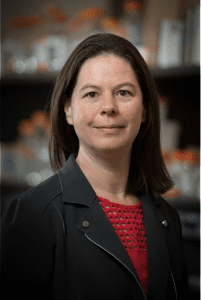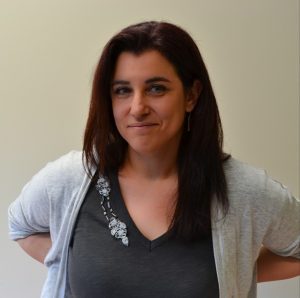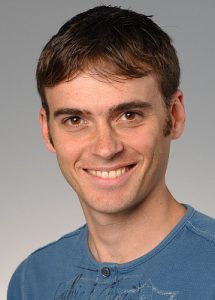Read our latest news in CAN Connection – Winter 2020
Author: Julie
Research Associate – University of Guelph – Khokhar laboratory
Position Title: Research Associate 1, (Grant & Trust Professional)
Employer: University of Guelph (Biomedical Sciences, Ontario Veterinary College)
Term: Temporary full time (24 month contract to start as soon as possible)
Hours: Full-time (35 Hours/Week)
Number of Positions: 1
Hiring Ref. Number: 2020-0027
N.B.: Please read the Application Instructions before applying: https://www.uoguelph.ca/hr/careers-guelph/how-apply
The Khokhar Lab researches the interactions between substance use and serious mental illness, with an eye toward treatment of these disorders using a variety of behavioural and circuit-interrogation methods. The Research Associate is responsible for the following main duties:
- conducts behavioural experiments assessing the effects of cannabinoids in a variety of animal models of addiction (e.g., withdrawal, conditioned place preference and self-administration/free-access intake) and serious mental illness (e.g., prepulse inhibition, latent inhibition);
- provides input with respect to appropriate methodology, procedures, equipment and standards to produce required research data;
- applies specialized knowledge and principles to review, appraise and interpret published literature, summarize research findings, and draft scientific/technical reports, manuscripts, grant proposals;
- establishes and maintains effective relationships with external partners, which may include coordinating of project plans, presenting research findings (may include presenting findings at conferences).
Education, Skills, Work Experience and other Requirements:
- Master’s degree in relevant discipline combined with at least 3-5 years of relevant research experience with behavioural paradigms including: withdrawal, conditioned place preference, self-administration/free-access intake, prepulse inhibition, latent inhibition;
- Experience coding with behavioural control software (e.g., Med Associates or equivalent), and using behavioural assessment software (e.g., Noldus Ethovision or equivalent) and statistical analysis software packages (e.g., SPSS or R);
- Proven ability in methodology, procedures, equipment and standards to produce required research data;
- Proficiency in summarizing research findings, reviewing, appraising and interpreting published literature;
- Strong attention to detail;
- Self-motivated and able to work collaboratively within a team environment;
- Experience with in vivo electrophysiology is considered an asset.
Salary: $54,107 – $58,600
Vacation Pay: accrual rate of 1.25 days/month
Benefits: Extended Health, Basic Life Insurance (up to specified maximums)
Location of Employer: 50 Stone Road, Guelph, ON N1G2W1
Location of Work: Guelph, ON
Language of Work: English
All Canadian citizens or permanent residents who qualify are invited to apply by sending their Cover Letter and CV (including list of publications demonstrating relevant experience), quoting hiring number 2020-0027, by email to careers@uoguelph.ca or by mail to the following address: 50 Stone Rd E, Guelph ON N1G 2W1 (Attention: Human Resources).
At the University of Guelph, fostering a culture of inclusion is an institutional imperative. The University invites and encourages applications from all qualified individuals, including from groups that are traditionally underrepresented in employment, who may contribute to further diversification of our Institution.
Posting end date: 2020/02/29
Researchers first to use ultrasound to deliver a compound that stimulates brain cell communication in mice with Alzheimer’s disease

Sunnybrook Research Institute senior scientist Dr. Isabelle Aubert and her PhD student, Kristiana Xhima, led the first study using focused ultrasound to deliver a molecule to the brain to revive the function of neurons vital to learning and memory in mice with Alzheimer’s disease.
Breakthrough targets restoring the function of neurons vital to learning and memory
CAN January 2020 Report on advocacy
CAN-ACN Annual Advocacy report – January 2020
Presented to SfN’s Government and Public Affairs committee by Jaideep Bains, CAN past president and GPA member.
The Canadian Association for Neuroscience has developed an active and efficient advocacy program over the last years thanks to the important support provided by the Society for Neuroscience. CAN will continue to build on the advocacy experience we have built, and, thanks to a new Memorandum of Understanding with SfN which has taken effect in July 2019, will expand its efforts in the coming years.
Our main objective in the coming months is to engage directly with elected officials, senators and parliament hill staff through the organisation of the first Canadian Parliament Hill Day, which will take place March 31st, 2020. We have hired a Public Affairs, Temple Scott Associates, with experience in organizing such events, to help with the logistic and strategic organisation of our event.
Continue reading
Slowing the progression of multiple sclerosis

CREDIT: BONESSO-DUMAS
By identifying a molecule that delays the progression of MS, CRCHUM researchers pave the way for new therapies for the nearly 77,000 Canadians living with the disease.
Over 77,000 Canadians are living with multiple sclerosis, a disease whose causes still remain unknown. Presently, they have no hope for a cure. In a study published in Science Translational Medicine, researchers at the University of Montreal Hospital Research Centre (CRCHUM) identify a molecule named ALCAM which, once blocked, delays the progression of the disease. Their results, obtained from in vitro human and in vivo mouse studies, could lead to the development of a new generation of therapies to treat this autoimmune disease. Continue reading
Cellular origins of pediatric brain tumors identified
 Source: MUHC and Lady Davis Institute
Source: MUHC and Lady Davis Institute
A research team led by Dr. Claudia Kleinman, an investigator at the Lady Davis Institute at the Jewish General Hospital, together with Dr. Nada Jabado, of the Research Institute of the McGill University Health Centre (RI-MUHC), and Dr. Michael Taylor, of The Hospital for Sick Children (SickKids), discovered that several types of highly aggressive and, ultimately, fatal pediatric brain tumors originate during brain development. The genetic event that triggers the disease happens in the very earliest phases of cellular development, most likely prenatal. The findings represent a significant advance in understanding these diseases, and are published in Nature Genetics. Continue reading
Activation of opioid receptor uncovered
 In conjunction with Chinese, Belgian, German and American academic colleagues, the team of researchers from the Université de Sherbrooke (UdeS), led by the Director of the Department of Pharmacology-Physiology, Professor Louis Gendron, participated in the discovery of the binding mechanism of an important opioid receptor. The results should facilitate the development of new active substances. Opioids used today to treat severe pain can be addictive and often have significant side effects, such as nausea. The results are published in the renowned journal Science Advances. Continue reading
In conjunction with Chinese, Belgian, German and American academic colleagues, the team of researchers from the Université de Sherbrooke (UdeS), led by the Director of the Department of Pharmacology-Physiology, Professor Louis Gendron, participated in the discovery of the binding mechanism of an important opioid receptor. The results should facilitate the development of new active substances. Opioids used today to treat severe pain can be addictive and often have significant side effects, such as nausea. The results are published in the renowned journal Science Advances. Continue reading
A post-doc position in the field of neural stem cell reprogramming and differentiation, Wang lab, Ottawa Hospital Research Institute
Description of the position:
Our research focuses on delineating molecular mechanisms that regulate neural stem cell reprogramming and differentiation, with the ultimate goal of the development of stem cell- based therapy to promote neural repair in the context of various neurological disorders. The individual filling this position is particularly involved in the ongoing project in the lab that is to develop integration-free methodology to reprogram non-neuronal cells into neural cells and to optimize stem cell-based therapies for post-stroke neurovascular regeneration and functional recovery. A variety of molecular, cellular, and behavioral techniques are used in the laboratory, including transgenic mouse models, neurosphere culture, rodent and human reprogramming cell culture and stereotaxic surgery, various neurological degeneration disease models, etc.
Eligibility Requirements:
- Experience in rat stroke models, stereotaxic surgery, Cell Biology (cell line or primary cell culture, immunohistochemistry and immunocytochemistry) and in vivo animal study.
- Excellence in research with strong publication records
- Excellent written and oral communication skills
- Self-motivated and strong desire to learn
- Experience with Human primary cell culture is an asset
Deadline: Until the position is filled.
Individuals who are interested in the position should submit curriculum vitae, a copy of official transcripts, statement of research interest and names of three references to:
jiwang@ohri.ca
Dr. Jing Wang, Ph.D.
Senior Scientist, Sprott Centre for Stem Cell Research
Ottawa Hospital Research Institute
Assistant Professor Department of Cellular & Molecular Medicine
University of Ottawa
Ottawa Hospital, 501 Smyth Rd, Box 511
Ottawa, ON K1H 8L6 CANADA
Postdoctoral Researcher in Computational Neuroscience – Lefebvre lab at UOttawa
The Lefebvre lab at uOttawa is recruiting two postdoctoral fellows for the Winter 2020. Candidates interested in computational neuroscience, brain imaging and applied mathematics are encouraged to apply.
Selected candidates will be involved in the following projects:
- In collaboration with the Griffiths Lab at the CAMH Krembil Center for Neuroinformatics (KCNI) and University of Toronto, the goal of the project is to develop, analyse and explore computational models of non-invasive brain stimulation (e.g. TMS, TES) and their impact on multi-scale neural activity. Specifically, we seek to better understand network-based mechanisms of neural control, oscillatory entrainment and/or stimulation-induced brain plasticity. This project involves a combination of computational and mathematical modelling, has strong potential for knowledge translation, and aims to help inspire new non-invasive treatments for Major Depressive Disorder (MDD).
- In collaboration with the Hospital for Sick Children (SickKids) in Toronto, the goal of this project is to better understand mechanisms of white matter plasticity, neuron-glia interactions, myelination and its impact on brain function. Using a combination of modelling and simulations, interfacing rodent and human data, the role of the fellow will be to examine the influence of white matter plasticity on neural synchrony and memory. This project involves a combination of computational and mathematical modelling, and strong interactions with experimentalists.
The research will take place in the Department of Biology, the Brain and Mind Institute and the Center for Neural Dynamics of the University of Ottawa, a vivid interdisciplinary research cluster set in the bilingual capital of Canada. Both projects are deployed in the Ottawa-Toronto axis, through close collaborations between uOttawa, uToronto, CAMH KCNI, The University Health Network and The Krembil Research Institute. Based on the research needs and resources, candidates will be required to travel between both cities often. Throughout, candidates will interact closely with clinicians, experimentalists and scholars in neuroimaging.
Requisites:
Candidates should have completed their PhD in physics, mathematics, neuroscience or related disciplines, and have an excellent publication track record. Expertise in programming is a necessity, as well as independence in research. Experience in brain imaging, signal processing and dynamical systems are considered strong assets. Contracts are for one year, with possibility of extension subject to sufficient progress. of one additional year. While the positions are fully funded, candidates are nonetheless expected to apply for external/competitive funding throughout their training.
To apply, please send 1) a letter of interest, 2) a full CV and 3) two(2) letters of reference to jeremie.lefebvre at hotmail dot com. Selected candidates will be contacted for an interview! Job open until filled!
Tenure-track Assistant or Associate Professor in Neurobiology of Aging and Dementia – Queen’s University
Tenure-track Assistant or Associate Professor in Neurobiology of Aging and Dementia
Department of Biomedical & Molecular Sciences and Department of Psychiatry
Centre for Neuroscience Studies
Queen’s University, Kingston, Ontario CANADA
The Departments of Biomedical & Molecular Sciences and Psychiatry in the Faculty of Health Sciences and the Centre for Neuroscience Studies at Queen’s University are seeking an outstanding early to mid-career scientist and educator with passion, energy, and a strong vision for innovative research in the area of neurobiology of aging and dementia. The research strengths of the preferred candidate need to complement at least one of the existing fields of neuroscience specialization within the faculty, which include: (i) cellular/molecular neuroscience, (ii) systems neuroscience, (iii) cognitive/behavioural neuroscience, and (iv) clinical neuroscience. More specifically, areas of particular interest include conditions associated with aging and neurological disease progression, such as but not limited to Alzheimer’s disease/dementia, Parkinson’s disease, mood disorders/depression, and autism spectrum disorders. The preferred candidate will need to demonstrate that they are an emerging leader in innovative, translational research approaches and methodologies, including proven experience with pre-clinical rodent or non-human primate research models in neuroscience (including aging-related conditions) that could foster collaborations locally, nationally and internationally.
Thus, the preferred candidate must have a distinguished track record of discovery and innovative research, and an ability to collaborate with colleagues in the Departments of Biomedical and Molecular Sciences, the Department of Psychiatry, Providence Care Hospital, the Centre for Neuroscience Studies, as well as with other scientists and clinical researchers at Queen’s University. Evidence that the candidate has the capacity to develop and deliver educational content in the area of neuropharmacology to both undergraduate and graduate programs will be an important selection criterion as well.
Appointments will be either tenure-track or with tenure, at the rank of Assistant or Associate Professor, depending upon the level of experience of the successful candidate. The preferred starting date is July 1, 2020. Candidates must have a PhD or equivalent degree completed at the start date of the appointment. As part of the submitted application, the successful candidate will: (i) provide evidence of high-quality scholarly output that demonstrates potential for independent research leading to peer-assessed publications and an externally-funded world-class research program; and (ii) demonstrate strong potential to make outstanding teaching contributions at both the undergraduate and graduate levels and an ongoing commitment to academic and pedagogical excellence in support of the Departments’ programs. Applicants will be expected to provide evidence of an ability to work collaboratively in an interdisciplinary and student-centred environment. The successful candidate will make contributions through service to the Departments, the Faculty, the University, and/or the broader community. Salary will be commensurate with qualifications and experience. This position is subject to final budgetary approval by the University.
Queen’s University is host to numerous research centres and research groups, housing scientists with research interests that will complement the successful applicant. These include the Centre for Neuroscience Studies (CNS); the Human Mobility Research Centre (HMRC Queen’s Chronic Pain Clinic at Hotel-Dieu Hospital); the Cardiac, Circulatory and Respiratory Research Group and Queen’s Cardiopulmonary Unit (QCPU); the Group for Research in Reproductive and Developmental Origins of Health, Disability and Disease; the Infection, Immunity and Inflammation Research Group; and the Queen’s Cancer Research Institute (QCRI). These groups and units maintain extensive collaborations with researchers locally, nationally, and internationally. They deploy an array of platforms to support transdisciplinary research teams interested in developing clinical tools for early diagnosis of disease, assessing prognosis and progression, and for predicting therapeutic response. Additionally, the Centre for Advanced Computing at Queen’s delivers a world-class high-performance computing environment and storage resources.
The University invites applications from all qualified individuals. Queen’s is committed to employment equity and diversity in the workplace and welcomes applications from women, visible minorities, Aboriginal peoples, persons with disabilities, and LGBTQ persons. All qualified candidates are encouraged to apply; however, in accordance with Canadian Immigration requirements, Canadian citizens and permanent residents of Canada will be given priority. To comply with Federal laws, the University is obliged to gather statistical information about how many applicants for each job vacancy are Canadian citizens / permanent residents of Canada. Applicants need not identify their country of origin or citizenship, however, all applications must include one of the following statements: “I am a Canadian citizen / permanent resident of Canada”; OR, “I am not a Canadian citizen / permanent resident of Canada”. Applications that do not include this information will be deemed incomplete.
A complete application consists of:
- a cover letter (including one of the two statements regarding Canadian citizenship / permanent resident status specified in the previous paragraph);
- a current curriculum vitae (including a comprehensive list of publications, awards, and grants received);
- a statement of current and prospective research interests and experience;
- a statement of teaching experience and interests together with a teaching portfolio (including teaching outlines and evaluations if available);
- the names and contact information of a minimum of three referees, one of whom must be at arm’s length.
The deadline for applications is February 3, 2020. Applications will continue to be reviewed until a suitable candidate is found. Applicants are asked to send all documents in their application packages electronically as PDFs to the attention of Dr. Claudio Soares, Professor and Head, Department of Psychiatry, and to Dr. Lynne-Marie Postovit, Professor and Head, Department of Biomedical and Molecular Sciences, Queen’s University, Kingston, Ontario, K7L 3N6. Please email to the attention of Ms. Jackie Moore in the Department of Biomedical and Molecular Sciences at dbmsrecruit@queensu.ca.
The University will provide support in its recruitment processes to applicants with disabilities, including accommodation that takes into account an applicant’s accessibility needs. If you require accommodation during the interview process, please contact: Jackie Moore in the Department of Biomedical and Molecular Sciences at dbmsrecruit@queensu.ca.
Academic staff at Queen’s University are governed by a Collective Agreement between the University and the Queen’s University Faculty Association (QUFA), which is posted at http://queensu.ca/facultyrelations/faculty-librarians-and-archivists/collective-agreement and at http://qufa.ca.
Contact information
Applicants are asked to send all documents in their application packages electronically as PDFs to the attention of Dr. Claudio Soares, Professor and Head, Department of Psychiatry, and to Dr. Lynne-Marie Postovit, Professor and Head, Department of Biomedical and Molecular Sciences, Queen’s University, Kingston, Ontario, K7L 3N6. Please email to the attention of Ms. Jackie Moore in the Department of Biomedical and Molecular Sciences at dbmsrecruit@queensu.ca.
Download a PDF version of this advertisement: Neurobiology-of-Aging-Advert-FINAL






